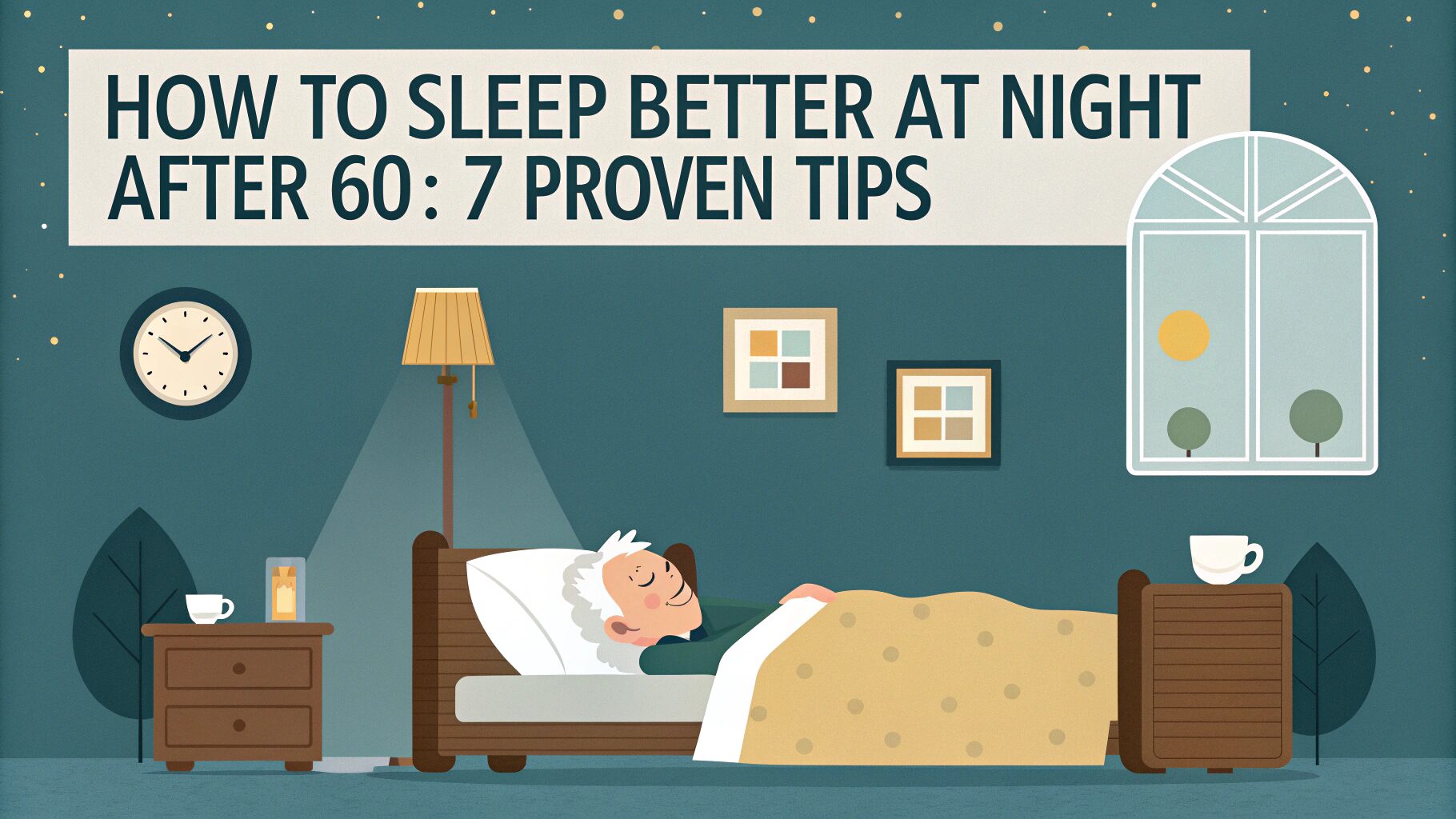Getting a good night’s sleep can become more difficult with age. Many seniors experience lighter sleep, frequent wake-ups, or trouble falling asleep. Poor sleep can lead to daytime fatigue, memory problems, mood changes, and even a weakened immune system.
The good news is that small changes in routine and environment can lead to big improvements in sleep quality. Here are seven research-backed tips to help you sleep better at night after 60.
1. Stick to a Consistent Sleep Schedule
Going to bed and waking up at the same time every day—even on weekends—helps train your body’s internal clock. Regular sleep times promote deeper and more restful sleep.
Tip: Choose a realistic bedtime and wake time that allows for 7 to 8 hours of sleep.
2. Limit Daytime Naps
Short naps can be helpful, but long or late-afternoon naps may interfere with nighttime sleep.
Tip: Keep naps under 30 minutes and avoid sleeping after 3 PM.
3. Create a Relaxing Bedtime Routine
Wind down with calming activities to signal to your body that it’s time to sleep. Avoid stimulating activities like watching intense TV shows or scrolling on your phone.
Try: Gentle stretching, reading, listening to soft music, or light meditation before bed.
4. Make Your Bedroom Sleep-Friendly
Your environment has a big impact on your sleep quality. A cool, dark, and quiet bedroom is ideal.
Tips:
- Keep the room temperature between 60–67°F (15–19°C)
- Use blackout curtains or an eye mask
- Reduce noise with a fan or white noise machine
- Choose a comfortable mattress and pillow
5. Watch What You Eat and Drink in the Evening
Heavy meals, caffeine, and alcohol can disrupt sleep. Try to finish dinner at least two hours before bedtime.
Avoid:
- Coffee or tea after 2 PM
- Spicy or greasy foods
- Large servings close to bedtime
Try instead: A light snack like yogurt, banana, or a small bowl of oatmeal.
6. Get Daylight Exposure and Stay Active
Sunlight helps regulate your body’s natural sleep-wake cycle. Physical activity also promotes better sleep.
Tips:
- Get at least 20–30 minutes of sunlight daily (preferably morning)
- Include gentle exercises like walking, stretching, or gardening during the day
7. Limit Screen Time Before Bed
The blue light from phones, tablets, and TVs can interfere with melatonin production—the hormone that helps you sleep.
Tip: Stop screen use at least one hour before bedtime. Choose calming, non-digital activities to wind down.
When to Talk to a Doctor
If you regularly have trouble sleeping, wake up frequently, or feel tired during the day despite a full night’s rest, talk to your doctor. Sleep disorders such as insomnia or sleep apnea are common in seniors and often treatable.
Final Thought
Good sleep is essential for physical health, memory, and emotional well-being—especially after 60. With a few simple changes, you can enjoy deeper, more refreshing sleep and wake up feeling better each day.
For more senior wellness and lifestyle tips, visit SeniorNova.com—your trusted resource for aging with comfort and confidence.
